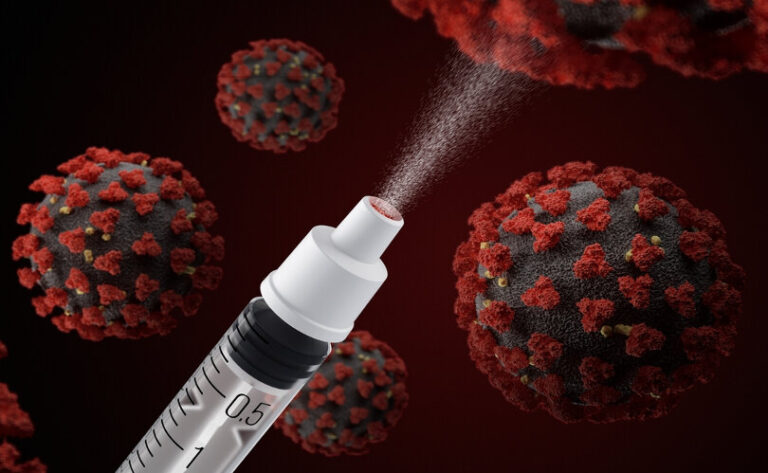FDA Responds After Being Urged to Recall Pfizer’s Vaccine Over DNA Fragments

Dr. Robert Malone and other experts say the COVID-19 shot should be recalled.
The US Food and Drug Administration (FDA) is refusing to recall Pfizer’s COVID-19 vaccine, arguing that the inclusion of a previously unknown DNA sequence that leaves fragments is unimportant.
An FDA spokeswoman told The Epoch Times via email that the FDA is not required to pull Pfizer’s COVID-19 vaccine or other COVID-19 shots from the market.
“After administering over a billion doses of the mRNA vaccines, no safety concerns about the sequence or amount of residual DNA have been identified.” “The available scientific evidence supports the conclusion that the FDA-approved mRNA vaccines are safe and effective,” the spokeswoman added.
The FDA provided no evidence to support its position.
The email came in response to ten questions about the Simian Virus 40 (SV40) DNA sequence being included in the Pfizer-BioNTech shot.
The Epoch Times has filed a Freedom of Information Act request to learn when and from whom the FDA learned about the sequence. The FDA denied the request for expedited processing, claiming that there is no “compelling need” to provide the information quickly.
Several foreign agencies, including Health Canada, have confirmed that the vaccine contains the DNA sequence as determined by outside scientists. They also claim that Pfizer did not emphasize the inclusion in regulatory filings.
The FDA refused to answer several questions about the sequence, including when it learned about it and whether it learned about it from Pfizer.
Pfizer and its partner, BioNTech, have not responded to requests for comment.
Kevin McKernan, a former researcher and team leader for the Massachusetts Institute of Technology Human Genome Project, discovered the inclusion.
“Nothing will be identified if they continue to choose not to look,” Mr. McKernan said in an email to The Epoch Times.

A number of scientists, including Dr. Robert Malone, a vaccine expert whose work has been cited by Pfizer, have expressed serious concerns about the inclusion, such as the possibility of oncogenesis (the process that leads to cancer).
According to Dr. Malone, the inclusion means the Pfizer shot is “adulterated” and should be recalled.
According to federal law, the FDA has the authority to test drugs suspected of being tainted. If the drugs fail to meet certain standards and a health hazard is discovered, the FDA is required to advise the manufacturer to recall the product.
If the manufacturer fails to issue a recall, “seizure should be considered,” according to the law.
“The general policy is that if there’s adulteration and a reasonable risk of toxicity, there must be immediate action,” Dr. Malone explained to The Epoch Times. “This is a core mandate from Congress to the FDA to prevent drug, medical device, and food adulteration.” The next question is whether or not that is adulteration. Is it associated with a reasonable risk of human toxicity? And, in my opinion, absolutely.”
After reviewing the FDA’s response, Dr. Malone concluded that regulators had failed to do their job.
“The standard procedure around the world has been that that risk must be rigorously assessed proactively.” But they haven’t done it, and their reason for not doing it is why they were so adamant that this isn’t a gene therapy technology,” Dr. Malone explained.
Moderna claims that its vaccine meets the FDA’s definition of gene therapy, but regulators have classified both Pfizer and Moderna’s products as vaccines, avoiding questions about oncogenesis.
Why Was the SV40 Involved?
Biotechnology companies have used SV40 sequences in drug products.
“Specific sequences for the non-infectious parts of SV40 are commonly present in plasmids used for manufacturing biological active substances,” the European Medicines Agency (EMA) explained via email to The Epoch Times.
The goal is to “drive very aggressive expression of a gene,” Mr. McKernan explained to The Epoch Times.
According to the EMA, Pfizer considered the sequence to be “a non-functional part of the plasmid.”
“If commonly used, then why are they included if they serve no function?” Dr. Malone enquired on Substack.
According to testing, the result is residual DNA left behind. Some scientists believe this could have a negative impact.
Former Johnson & Johnson scientist David Wiseman, who conducted some of the testing, expressed concern that the residual DNA fragments “could actually get into your genome.””If it does that,” Mr. McKernan says, “it can disrupt gene regulation and potentially lead to oncogenesis.”
Earlier this year, Phillip Buckhaults, professor of cancer genomics and director of the Cancer Genetics Lab at the University of South Carolina, stated that he tested vials of Pfizer’s vaccine and found DNA.
“I’m kind of alarmed about the possible consequences of this both in terms of human health and biology, but you should be alarmed about the regulatory process that allowed it to get there,” said the senator from South Carolina.
According to Mr. Buckhaults, the DNA “could be causing some of the rare but serious side effects like death from cardiac arrest.”
He has urged regulators to put the Pfizer vaccine to the test.
“This is probably not a problem, but it is surprising and therefore causing concern,” Mr. Buckhaults wrote on X, formerly known as Twitter, tagging the FDA. “You should address with rigorous safety review ASAP.”





